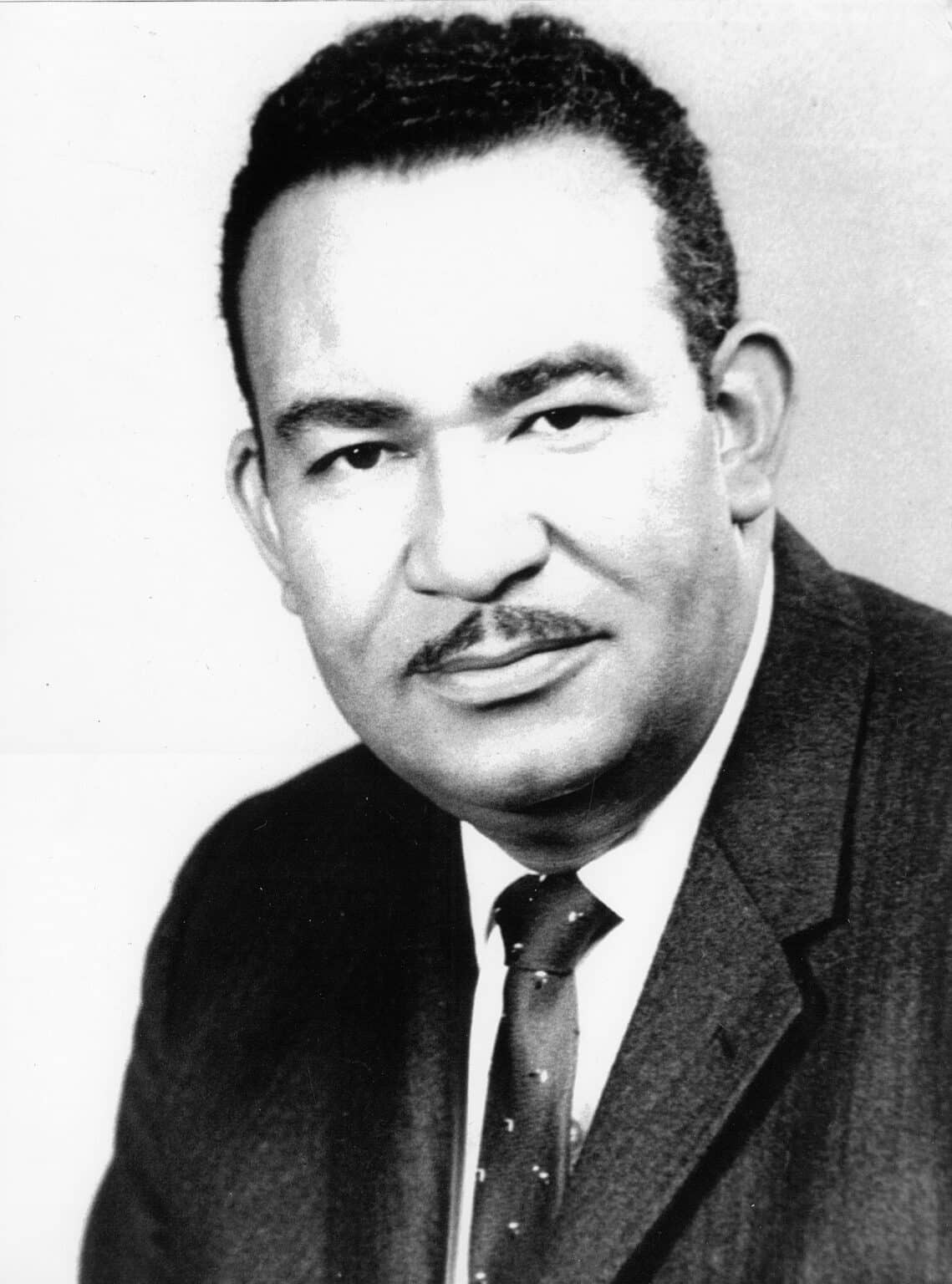RESOURCES
PEOPLE
Rev. Leslie Francis Griffin
1917-1980
Rev. Leslie Francis Griffin was a bold and tireless advocate for civil rights and educational equality in Prince Edward County, Virginia. As pastor of Farmville’s First Baptist Church and a state and local NAACP leader, Griffin played a defining role in one of the most pivotal and protracted battles of the civil rights era: the fight to desegregate schools in a county that closed its public education system for five years rather than integrate.
Griffin moved to Farmville as a child when his father became pastor of First Baptist Church. He attended R.R. Moton High School, where he was recognized as a brilliant—if sometimes undisciplined—student. In the late 1940s, while studying at Shaw University, he encountered the liberating ideals of the Social Gospel, which preached that Christianity must concern itself with social justice. It was a message that transformed his ministry and his mission. He joined the NAACP and, upon returning to Farmville, succeeded his father as pastor at First Baptist.
From his pulpit and through his activism, Griffin became the conscience of his community. Always ahead of local public opinion, he was often considered controversial for his outspoken stances. He committed himself to advancing the educational, political, and economic prospects of Black residents who had been systematically excluded from opportunity. He quickly became involved in multiple leadership roles: he was a key figure in the Moton High School PTA, the local NAACP, and later became president of the Virginia State NAACP. He also founded the Prince Edward County Christian Association, which played a critical role in coordinating community resistance during the crisis of school closings.
Griffin was at the heart of the county’s civil rights struggle from the 1951 Moton High School student strike—to the 1964 Supreme Court ruling in Griffin v. County School Board of Prince Edward County, a case named for his children, who were among the plaintiffs. This decision forced the county to reopen its public schools after five years of defiance.
During this era, he also organized and led demonstrations, including the notable 1961 NAACP rally in front of the county courthouse. Throughout the school closings, Griffin served as the main point of contact for national civil rights organizations, philanthropists, and federal officials. At the same time, he acted as a gatekeeper, carefully managing outside activists—some of whom sought to use Prince Edward County for their own agendas—insisting that local voices and strategies guide the movement.
Griffin paid a personal price for his activism. He endured criticism, threats, and isolation, not only from white segregationists but also from more cautious members of his own community. Nevertheless, he remained a steadfast and unshakable leader. His ability to navigate the complex social and political terrain of the era made him a respected and revered figure across the region.
Rev. L. Francis Griffin died in 1980, but his legacy as a spiritual leader and civil rights warrior lives on. In 2001, the Virginia General Assembly named him a “Virginia Hero,” and his story is prominently featured at the Robert Russa Moton Museum.
